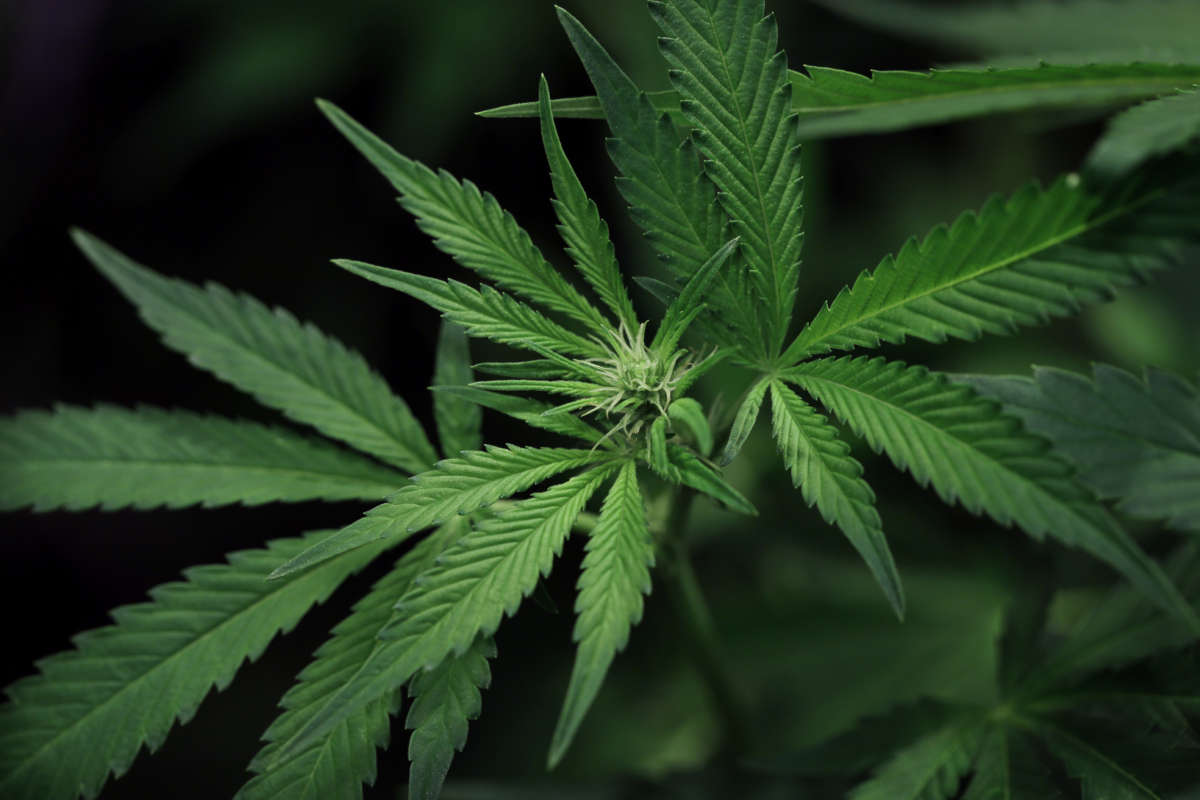Did you know that Truthout is a nonprofit and independently funded by readers like you? If you value what we do, please support our work with a donation.
Senate Democrats, including Majority Leader Chuck Schumer (D-New York), are set to introduce a bill on Wednesday that would decriminalize marijuana at the federal level. The bill also attempts to remedy the harms done to those negatively impacted — disproportionately represented by people of color — by the prohibition of the drug over the decades.
The 163-page bill, which is also sponsored by Senators Ron Wyden (D-Oregon) and Cory Booker (D-New Jersey), would call for bringing “common sense to the federal government” when it comes to cannabis, to “end prohibition and restore the lives of those hurt most and set them up for opportunity.”
“Cannabis prohibition, a key pillar of the failed war on drugs, has caused substantial harm to our communities and small businesses, and especially for communities of color,” Wyden said in a statement about the bill.
The bill would “finally turn the page on this dark chapter in American history and begin righting these wrongs,” Booker also said.
Among a number of provisions in the bill, the Cannabis Administration and Opportunity Act would remove marijuana from the Controlled Substances Act list of drugs that are barred for recreational use, and allow the government to regulate and tax marijuana as well. Businesses in In states where marijuana is already legalized, businesses would be able to sell the drug and users consume it without risk of federal criminal liability.
The bill would not automatically decriminalize marijuana in every state — those that still ban its use would be allowed to keep those laws intact, to prohibit its use within their jurisdictions.
The bill would, however, expunge federal nonviolent marijuana-related arrests and convictions from individuals’ records, and would use federal tax dollars generated from the sale of marijuana to create restorative justice programs to help communities harmed by years of prohibition. The bill would also transition regulatory authority of cannabis manufacturing and marketing to the Food and Drug Administration (FDA).
While the bill is likely to garner praise, it faces steep challenges in passing within the deeply divided Senate where most of the 50 Democrats are largely in favor of decriminalization while most of the 50 Republicans are opposed to the idea. It’s more than likely that the bill will be blocked with the threat of a filibuster unless at least 10 Republicans, along with every single Democrat in the chamber, agree to pass it.
The bill also only focuses on marijuana decriminalization, and not any other drugs on the controlled substances list, unlike the bill proposed in June by Representatives Cori Bush (D-Missouri) and Bonnie Watson Coleman (D-New Jersey) called the Drug Policy Reform Act, which seeks to decriminalize all drugs that have fueled the war on drugs for decades.
That legislation calls for a “refocus” on drug regulation, toward an approach that is “health-focused, evidence-based and respectful of self-determination.” It would expunge criminal records and provide for resentencing of convictions for all drugs, reinvest in alternative health approaches, and eliminate other consequences of past and future use of the drug, including denial of employment, refusal of public benefits, restriction of voting rights, and people’s immigration statuses.
The “punitive approach” to drugs “creates more pain, increases substance use, and leaves millions of people to live in shame and isolation with limited support and healing,” Bush said in announcing the legislation, adding that “it’s time to put wellness and compassion ahead of trauma and punishment.”
Media that fights fascism
Truthout is funded almost entirely by readers — that’s why we can speak truth to power and cut against the mainstream narrative. But independent journalists at Truthout face mounting political repression under Trump.
We rely on your support to survive McCarthyist censorship. Please make a tax-deductible one-time or monthly donation.
